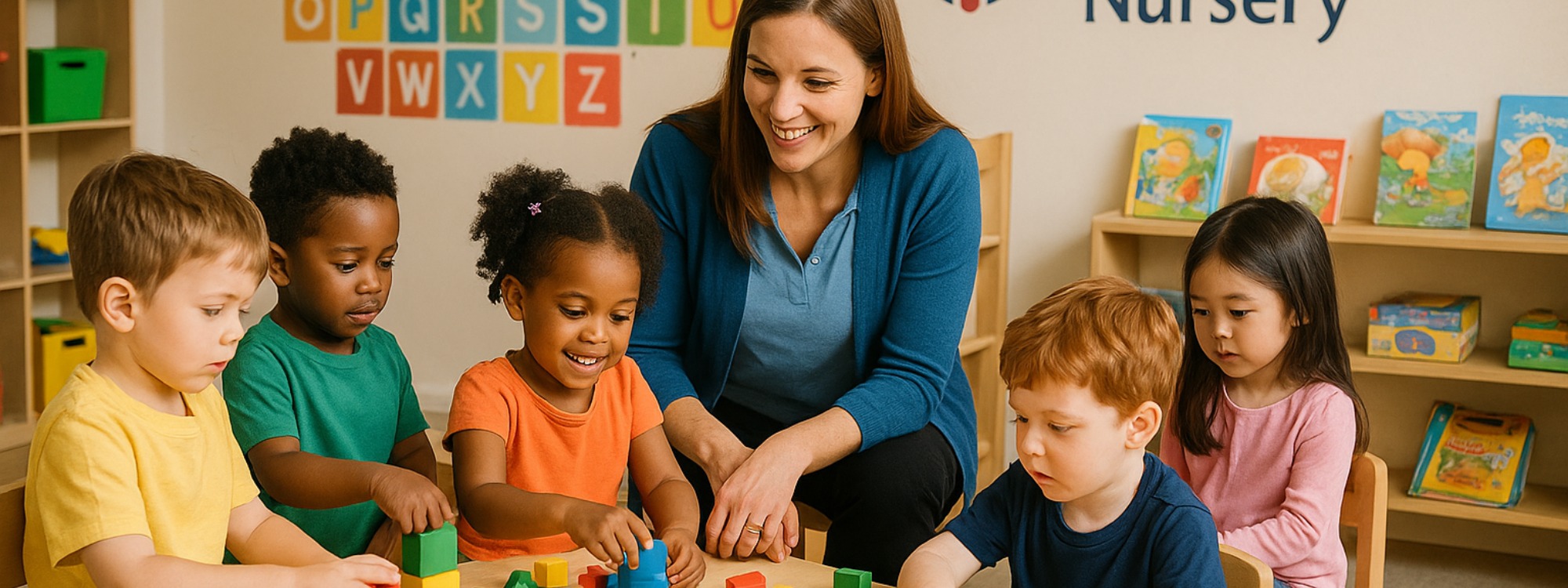Nursery(Foundation Stage 1 - FS1)
Foundation Stage 1 (FS1)
Age Group: 3 to 4 years
At The British School in Gothenburg, our Foundation Stage 1 (FS1) is the first step in your child’s learning journey. Designed for children aged 3 to 4 years, FS1 lays a strong foundation for a lifetime of curiosity, creativity, and confidence.
A Nurturing Start
In FS1, we offer a warm, secure, and stimulating environment where every child feels valued and supported. We understand that early childhood is a vital stage in development, and our caring team of educators ensures that children feel happy, safe, and ready to explore the world around them.
Educational Philosophy
Our teaching in FS1 is inspired by the Early Years Foundation Stage (EYFS) framework from the UK. We believe in:
-
Play-Based Learning: Children learn best when they are engaged in purposeful play that reflects their interests.
-
Child-Initiated Exploration: Teachers observe and respond to each child’s curiosity, building on their natural motivation to learn.
-
Active, Hands-On Experiences: Children learn through doing, discovering, and interacting with their environment and peers.
-
Strong Focus on Social and Emotional Development: We help children build friendships, gain independence, and develop self-confidence and empathy—essential qualities for lifelong learning.
Areas of Learning and Development
The EYFS curriculum is structured around seven key areas of learning, divided into two main categories:
1. Prime Areas (Core focus in FS1)
-
Communication and Language: Developing listening skills, understanding, and speech through stories, conversations, and songs.
-
Physical Development: Building coordination, movement, and self-care through indoor and outdoor activities.
-
Personal, Social and Emotional Development: Encouraging confidence, social interaction, and emotional awareness.
2. Specific Areas (Introduced gradually)
-
Literacy: Developing a love for books, stories, and early mark-making.
-
Mathematics: Exploring numbers, shapes, patterns, and simple problem-solving.
-
Understanding the World: Encouraging curiosity about people, places, and nature.
-
Expressive Arts and Design: Engaging in music, art, role play, and creative expression.
Assessment
Our approach to assessment is informal and ongoing.
-
Daily Observation: Teachers use daily interactions and play-based activities to understand each child’s development and needs.
-
Personalised Support: Insights from observations are used to tailor activities and provide individual support for learning and growth.
Partnership with Parents
We believe learning is a partnership between school and home. Regular communication and parent involvement ensure that each child’s transition into school life is smooth, joyful, and well-supported.
